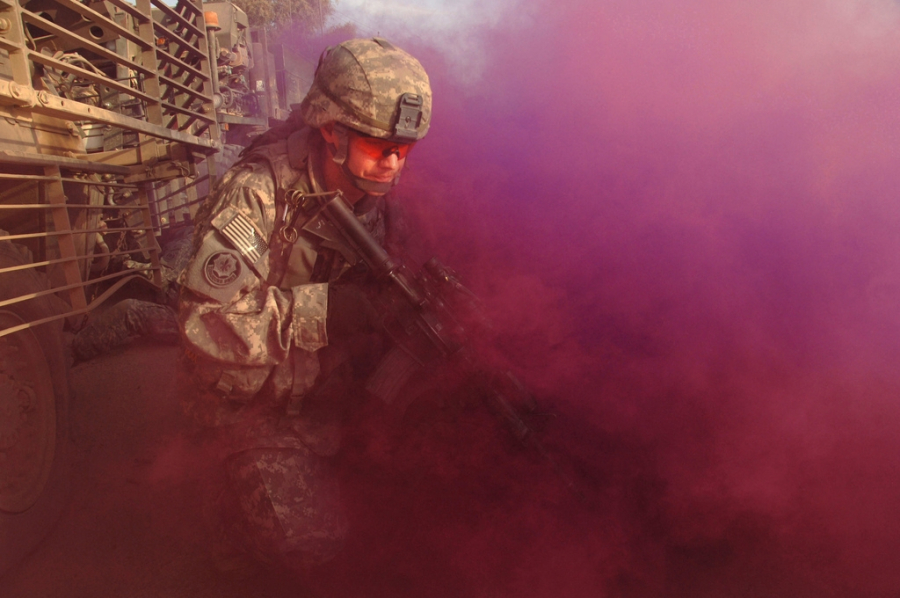President Donald J. Trump's thirty-first week in office primarily showed an address concerning the 16-year long war with Afghanistan, perceived progress in international relations with North Korea and an assorted list of hotly debated topics at Trump rally. At the beginning of the week, Trump immediately noted that his administration would let troops remain in Afghanistan in order to further focus on defeating terrorist organizations such as al-Qaida and the Islamic State. Trump's commitment to avoiding defeat in Afghanistan is a far cry from his original assertions during his campaign, of which included him calling the war a waste of U.S resources and a tweet that declared "Let's get out!"
While Trump proclaimed a strong stance on the future of U.S involvement in Afghanistan, the former business magnate did not provide further detail about the methods or targets American troops would implement to win the war. One example of this is Trump's absent remarks on the Taliban, an organization which played a large role in leading the U.S to war against Afghanistan concerning the September 11th attacks. In addition, Trump did not make any mention of the amount of troops that would be used in Afghanistan. Instead, Trump redirected the questions about troops to Secretary of Defense Jim Mattis, who will primarily be in charge of determining the number of troops necessary. Finally, adding on to the secretive framework surrounding U.S strategy in Afghanistan, is Trump's rejection of a time-based procedure for the war.

President Trump expanded on his unique plan, stating "Conditions on the ground, not arbitrary timetables, will guide our strategy from now on. I will not say when we are going to attack, but attack we will." Such a statement was met with both positive and negative responses, with Senate Armed Services Committee chairman John McCain declaring that Trump was finally "moving [the United States] well beyond the prior administration's failed strategy of merely postponing defeat." In contrast, Minority Leader of the United States House of Representatives Nancy Pelosi shared her disapproval, arguing that "tonight, the president said he knew what he was getting into and had a plan to go forward. Clearly, he did not."
Along with an address concerning the Afghanistan war, Trump's rally in Phoenix displayed the President's perspectives and views on other matters. At the rally, Trump defended his prior remarks concerning the Charlottesville rally as well as suggesting that he might end the North American Free Trade agreement. Perhaps the most controversial statement made was about the long-touted wall between the U.S and Mexico. Trump threatened to shut down the government if Congress doesn't agree to finance the wall.

At the same rally, Trump also mentioned that progress was occurring in the bitter tension between North Korea and America. Unfortunately, North Korea's state news agency reported that North Korean leader Kim Jong Un is currently ordering more rocket engines. Such a news release, while it may seem trivial, further uncovers the underlying tension brewing on the North Korean side through their preparations for nuclear war. If a nuclear war were to breakout as a result of these tensions, the war would prove to be devastating for the sheer amount of human lives that would be lost. Chinese Foreign Ministry spokeswoman Hua Chunying says it best when addressing such tension, stating that China hopes "all sides can be brave enough to shoulder their responsibilities, show goodwill to each other and take correct actions to help further ease tensions."
- https://apnews.com/b4a7beeb3ffc4bfcab384108e1f041db?utm_campaign=SocialFlow&utm_source=Twitter&utm_medium=AP
- https://www.washingtonpost.com/news/post-politics/wp/2017/08/23/as-trump-ranted-and-rambled-in-phoenix-his-crowd-slowly-thinned/?utm_term=.a9f6b546ba23
- http://www.reuters.com/article/us-northkorea-missiles-idUSKCN1B306Phttp://www.reuters.com/article/us-northkorea-missiles-idUSKCN1B306P










